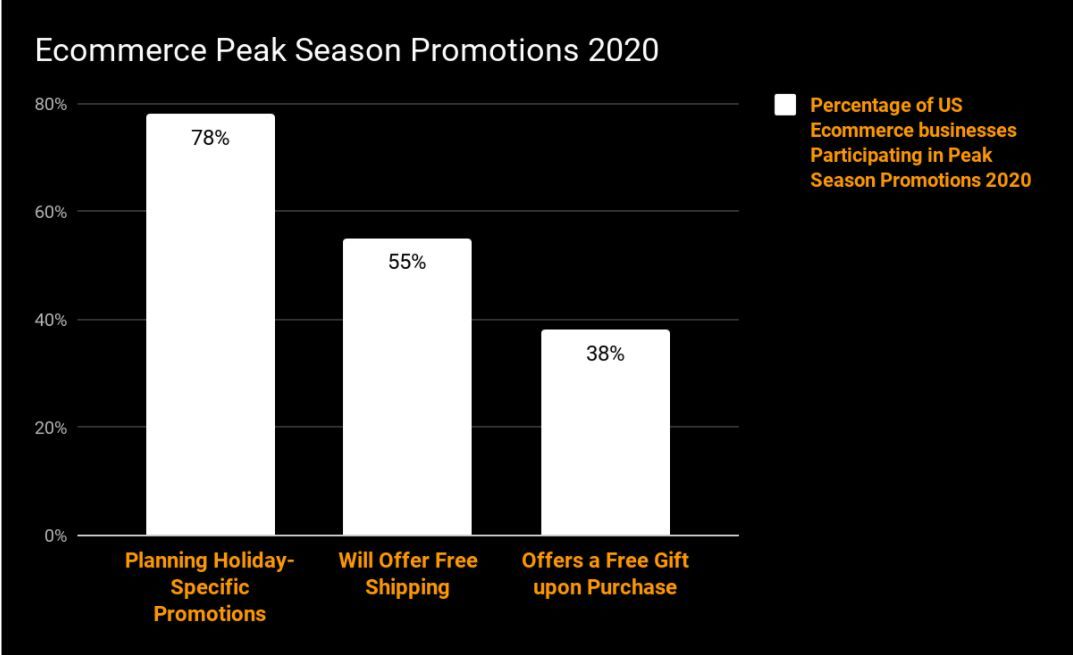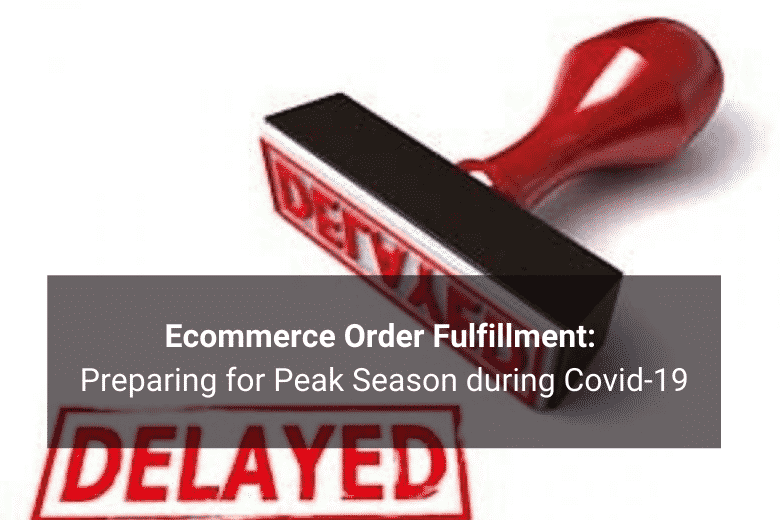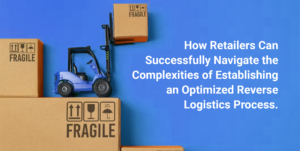Whether you’re a US-based ecommerce brand preparing for Black Friday and Cyber Monday (BFCM) or are based elsewhere and looking to meet demand by peak season, Christmas or on other national holidays in the last months of the year, all online sellers face the same challenge: handling order fulfillment. How will you get the parcels to your customers in time? In this article we’ll cover this exact question.
Challenging Times Ahead for Ecommerce Peak Season Shipping
While every year, companies face difficulties getting their inventory fully stocked and shipping orders out in time, this year is especially challenging due to the ongoing COVID-19 pandemic. With several countries still trying to flatten the curve of the initial wave which started in March 2020, others are facing a second wave, with case counts of up to 3 times what they were before. As Multichannel Merchant puts it, the situation is unprecedented and a mad scramble for delivery capacity without breaking the bank, and rethinking strategies.
DHL and FedEx imposed surcharges for the first time ever mid-year, targeted at large volume ecommerce brands looking to ship all the orders out and based on the weekly averages of orders shipped in February and March, MultiChannel Merchant stated in their latest report. Steve Suh, CEO of Floship, adds that couriers do not currently have any excess capacity and thus we’ve been seeing courier fees rapidly increase over the months.
A decrease in supply of airfreight due to less scheduled passenger flights (lots of passenger flights usually carry parcels for couriers that do not have their own fleet), stricter customs regulations causing delays in shipping, as well as anticipated increases of global ecommerce sales, this holiday season is especially looking to become a tough one to manage.
Is Black Friday Dead?

If you’re preparing for BFCM you may be wondering: Is it going to be the same this year? Isn’t Black Friday dead? Will people still shop as much on Cyber Monday? Shopify Plus, a premium brand by Shopify aimed at enterprise ecommerce businesses, recently organized a webinar on this exact topic, emphasizing what we at Floship also hear from our clients and network, Black Friday is definitely NOT dead. 58% of BFCM purchases in 2019 were online. This year, 73% of US shoppers intend to make their holiday purchases online, and 77% will be looking for gift ideas online rather than in-store. A number of categories will see a drastic increase in online sales compared to last years, with art supplies going up 400%, fashion going up 600% and meat delivery of all things, going up by a whopping 1000%. Chances are that your industry will see an increase in online sales as well.
So, no, Black Friday is here to stay, but will primarily see online sales rocket in this age of stay at home work and study arrangements. Keep in mind though that ¼ of shoppers already made their holiday purchases and ¾ of shoppers expect to have finished shopping even before Friday the 27th of November, when Black Friday kicks-off. 30% of online shoppers also said to be willing to purchase brands previously unknown to them or which they are not loyal to. This provides new opportunities for emerging brands still making a name for themselves.
Less Impulse Purchases, more Research and Exploration
Shopify further discussed impulse purchases and consumer product evaluations. Where consumers were more likely to give in to impulse purchases prior to the pandemic, we now see that impulse buying has been greatly reduced and more time is spent evaluating product options. Consumers now spend more time exploring different brands and doing research before making a decision on what to purchase.
The emphasis now seems to be on the right price-quality ratio. Keywords such as ‘Best Affordable’ are trending and have grown by 60% globally. It is advisable to keep this in mind while planning your peak season promotions and SEO efforts.

Peak Season Promotions
Knowing that online sales will likely be higher than ever before, your business probably belongs to the 78% of businesses that are still going to participate in the holiday promotions. 99% of online sellers will offer promotions through their own website, while 67% of online sellers will also sell at discounted prices through marketplaces like Amazon. 55% offers free shipping and 38% offers a free gift upon purchase of one of the products taking part in the promotion.

Worldwide shipping during Peak Season 2020
The question that is most interesting to us at Floship is, how will you handle your worldwide shipping? As a leading ecommerce order fulfillment provider with warehouses in Hong Kong, Mainland China, the United States and Europe, with over 6 years of experience and expertise, this is exactly what we constantly think of and assist with.
2020 has been the year of unreliable shipping for many businesses which resulted in a massive influx of customer complaints, negative reviews and frustration. Flights were cancelled and thus parcels were left in transit for weeks, sometimes months. Shipping costs increased often by over 300%. “We saw airfreight costs increase on a week by week basis between March and July, air freight delivery times were delayed 7-14 days than usual, and booking capacity with traditional air freight became almost impossible. – Steve Suh, CEO of Floship”.
Strong brands quickly discovered that the only way forward is to communicate clearly with customers on the situation and whereabouts of their parcels. The panel on the Shopify Plus webinar consisting of Fringe Sport, Sassy Jones and Kotn also found that being open, vulnerable and communicating clearly about what their companies are going through trying to maneuver around COVID-19 restrictions and delays was met with understanding from their community and decreased consumer dissatisfaction.
Nate Skiver, founder of LPF Spend Management and a former shipping executive at Gap Inc., Stella & Dot and Abercrombie & Fitch mentioned in the same report by MultiChannel Merchant that small shippers may be at a disadvantage discussing better rates with couriers, however they may not be on UPS’ or FedEx’ rader in terms of capacity due to their smaller order volumes. Skiver suggests smaller ecommerce brands to work closely with the carrier making sure that their operations are not disrupted, so that it’s unlikely that small ecommerce brands will experience too many issues. Mid-Market and Ecommerce Enterprises may experience more issues due to the disruption their surge in capacity requirements may cause. This is where Floship comes in.
Floship Order Fulfillment
Our main facilities are located in Hong Kong, a city that is relatively untouched by COVID-19 as case counts have remained low since the beginning of the year. We have therefore not had any significant delays or issues at our warehouses. While several couriers did scale back on their airfreight capacity, our dedicated team of account managers proactively anticipated these changes by suggesting quick alternatives on a daily basis, ensuring that parcels were still shipped out on time. Alternatives could be ocean freight, rail freight transport, multi-modal transportation, shipping with regional carriers, express shipping such as FedEx or DHL who have their own fleet, or other standard shipping options that were not yet facing issues shipping and delivering. Challenging times ask for creative ways on tackling transportation needs.
Steve Suh, ecommerce fulfillment specialist and CEO of Floship, suggests considering D2C (Direct to Consumer) shipping methods allowing you to ship directly from Hong Kong to consumers worldwide. Shipping your customer’s individual order(s) directly to his or her address. This significantly decreases delays as you would not have a chunk of your inventory sitting on the water (ocean freight) or being delayed via traditional air freight methods, missing on potential sales that you could have capitalized on due to tackling traditional supply chain issues. Choosing a D2C shipping method allows you to ship faster and respond to trends quicker. As you would not be shipping bulk orders, there would be less strain on the capacity of carriers, and thus less disruption to their operations.
Our warehouses all work according to strict COVID-19 regulations, exercising social distancing, checking temperatures at the gates and multiple times throughout the day, as well as frequent disinfecting tools and materials.
Floship works with mid-market and enterprise ecommerce brands and online sellers, as well as the largest crowdfunding campaigns on Kickstarter and Indiegogo with at least 2000 backers. Our proprietary software integrates with Shopify Plus, Magento Enterprise, DemandWare, BigCommerce and 60+ other ecommerce platforms and marketplaces. We advise businesses to prepare for order fulfillment sooner than later, and thus to contact us as soon as possible. Onboarding at Floship is a quick process, but partnering up sooner allows you to prepare inventory and have it stored in our facilities in time for the peak season.
Author:
Ramon den Hartog is the Head of Marketing at Floship, frequently writing about Ecommerce trends, Logistics and Marketing.

Ready To Upgrade Your Logistic Solution?
Speak to Floship ecommerce logistic consultant about improving your global support chain today





